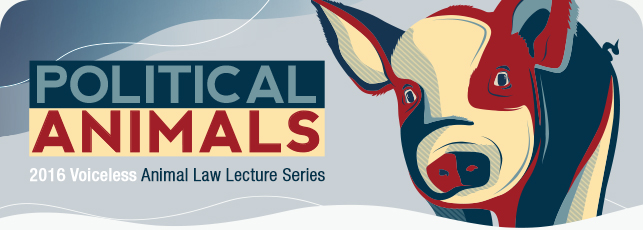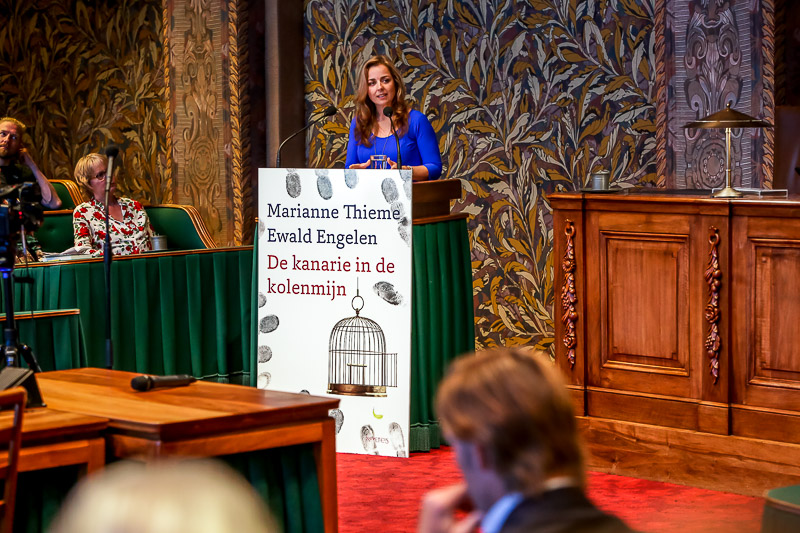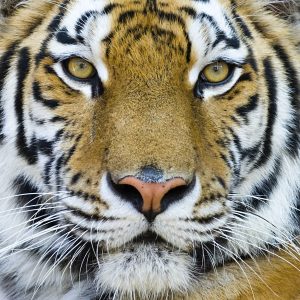Worldlog 9 de mayo 2016
Esta vez escribo el blog internacional desde Australia. Entre los días 4 y 17 de mayo ofrezco una serie de conferencias en este país por invitación de Voiceless, una organización que lucha por los derechos de los animales. En diez conferencias celebradas en distintas universidades y un despacho de abogados hablaré sobre el papel de instigador del debate sobre los derechos de los animales y, naturalmente, sobre el significado político de dicho papel. Estoy encantada de que Voiceless me haya ofrecido esta oportunidad tan fantástica. Mi gira australiana, además, no está pasando desapercibida entre los nativos. Ya se han inscrito 1700 personas para asistir a mis conferencias y el periódico The Sydney Morning Herald ha publicado este artículo.

Mi nuevo libro, El canario en la mina, ya está disponible en inglés en formato electrónico. Se trata de un libro escrito en colaboración con el geógrafo financiero Ewald Engelen, en el que advertimos sobre la insostenibilidad de las decisiones políticas y financieras que se están tomando en la actualidad, motivo por el que reclamamos un cambio radical del rumbo, Ewald desde una perspectiva económica y yo desde un punto de vista ecológico. ¡Es la hora del plan B!
El 21 de abril tuvo lugar la fiesta de lanzamiento de El canario en la mina en el senado. Aquí puedes ver fotos del evento. Tras apenas dos semanas en las tiendas en Holanda hubo que imprimir una segunda edición. Genial que tanta gente esté interesada en nuestro mensaje.
La versión en inglés del e-book está disponible en las tiendas digitales holandesas y a través de Amazon.com, Amazon.co.uk y (a partir de la semana que viene) Amazon.com.au.

Y para terminar tengo una noticia de última hora: gracias a una moción presentada por mí se ha prohibido la entrada en Holanda de trofeos de caza de más de 200 animales salvajes. Esto significa que desde este mismo momento la aduana holandesa no permite el paso de, entre otras cosas, marfil, pieles de tigre o cuerno de rinoceronte. Los aficionados a la caza pagan grandes sumas de dinero para participar en safaris en los que pueden matar elefantes, leones y otras especies amenazadas. Gracias a esta prohibición, los cazadores holandeses ya no podrán lucir en casa los animales salvajes que matan fuera de Europa. Espero que de esta forma desaparezca una motivación importante para utilizar el extranjero como campo de tiro.

Saludos muy cordiales,
Marianne
I am writing this Worldlog from Australia. At the invitation of the Australian animal rights organisation Voiceless I am giving a series of lectures in Australia between the 4th and 17th of May. I will give 10 lectures at different universities and a law firm explaining the role of the booster in the animal rights debate, and of course also the political meaning of this booster role. I think it is great that Voiceless has given me this opportunity. And my tour around Australia is certainly not going unnoticed here. Almost 1,700 people have registered to attend my lecture and the Sydney Morning Herald has published the following article relating to my lecture tour.

My new book The Canary in the Coal Mine is now available as an English e-book! I wrote this book together with Ewald Engelen, professor of Financial Geography. We warn against the unsustainability of today’s politics and financial choices. And that is why we advocate a radical change of direction. Ewald from an economic perspective and me from an ecological standpoint. Time for plan B!
On the 21st of April last, we celebrated the launch of The Canary in the Coal Mine in the Senate. Pictures of the book presentation can be viewed here. After just two weeks of the book being for sale a second edition was required already. It is great to see that so many people are interested in our message!
The English e-book version can be ordered from Dutch webshops and via Amazon.com, Amazon.co.uk, and as from next week on Amaxon.com.au.

And last I have some breaking news: thanks to a motion I submitted it is no longer allowed to import hunting trophies of 200 wild animals into the Netherlands. This means that as from now, ivory, tiger skins and rhino horns are rejected at Dutch borders. Hunters pay a great deal of money for trips to hunt elephants, lions and other threatened animal species. Thanks to the new import ban, Dutch hunters can no longer show off the wild species they have shot outside of Europe. Hopefully this will take away the key incentive to use foreign nature as a shooting gallery.

Kind regards,
Marianne